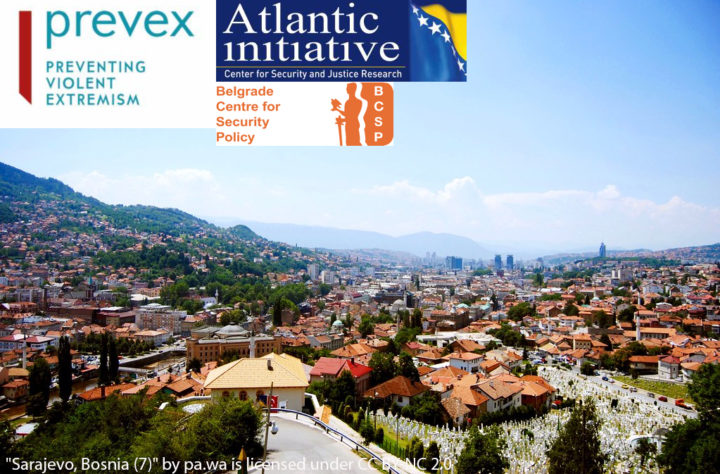What is the role of the EU and other external stakeholders in preventing violent extremism in the Western Balkans?
Belgrade Centre for Security Policy (BCSP) and Atlantic Initiative (AI) from Sarajevo organized a virtual roundtable discussion to share the main conclusions presented in a policy brief summarizing EU and other stakeholder’s prevention strategies towards violent extremism in the Western Balkans. The policy brief outlines the dominant external approaches and narratives behind the prevention and countering of violent extremism.
The panellists, Edina Bećirević, Atlantic Initiative (Sarajevo, BiH), and Predrag Petrović, BCSP Program Director, acknowledged that violent extremism comes in all shapes and forms and cannot be reduced to Islamic extremism, nor should it be equalized with terrorism. They also agreed that there have been problems with the implementation of long-lasting soft policies and a lack of coordination among international stakeholders for implementing P/CVE measures.
During the discussion, the participants discussed the EU Counter-Terrorism Agenda; the influence this research might make on EU policy; what recommendations should be presented; and the need for civil society to be involved in implementing counter-terrorism measures. Participants agreed that some of the repressive measures mentioned in the newly adopted EU Counter-Terrorism Agenda should be closely monitored in the context of Western Balkans countries since they can and have already been used to silence critical voices and political opponents.
The participants also agreed that the right-wing extremist groups have become a great concern, especially since the beginning of the pandemic, which has provided fertile grounds for different conspiracy theories and extreme narratives.




